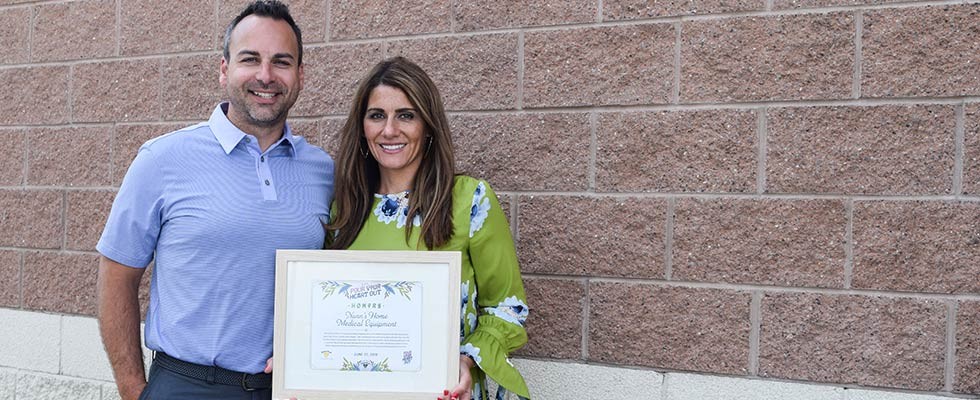
Making a move from funeral director to durable medical equipment (DME) dealer doesn’t seem intuitive. But in 1942, when Martin J. Nunn couldn’t find a rental wheelchair for his funeral home, he did just that. His company, Nunn’s Home Medical Equipment, based in Rome, New York, is celebrating its 80th anniversary this year, with the third generation of family at the helm.
A lot has changed since the company opened its doors, including the shuttering of 45% of New York’s DME companies due to competitive bidding, two acquisitions for Nunn’s and the opening of a second location in Syracuse, New York, said Erin Weiman, Nunn’s granddaughter and the current CEO.
COVID-19 & Supply Chain
When the pandemic struck, Nunn’s didn’t close its doors, Weiman said. Instead, the company switched to virtual CPAP setups, using video chat to demonstrate fitting a mask. The virtual setup has been so successful that the company is continuing offer these appointments, she added.
“We understood the importance of our role in the community and put every effort in to continuing PAP setups, selling vital DME products through curbside pickup and shipping, and having a constant supply of personal protective equipment product available,” Weiman said.
One element of retail that was important pre-pandemic was the idea of “try before you buy” for lift chairs and mobility devices. When customers couldn’t enter the store, Nunn’s took to the parking lot.
“Customers were able to meet a care coordinator outside in the parking lot, where a lift chair was already setup,” Weiman explained. “While remaining socially distant, the customer was able to sit in the chair, try the various lift mechanisms and ask the care coordinator questions.”
But the pandemic broke the DME supply chain. Factories are short-staffed and lacking materials to meet production needs. And some products are simply stuck in transit. The Philips CPAP and ventilator recall has also made obtaining new PAP devices difficult as other industry players struggle to keep up.
“We have had patients who are ready for their setup appointments but have had to wait several weeks before we can schedule that so that we have their device available,” said Shawn Weiman, Nunn’s president.
Despite this, Shawn Weiman added that the company’s large warehouse space means they have been able to ride out a lot of the difficulties in other categories.
“Through running reports on purchasing trends, Nunn’s has been ordering ahead of time to have the product available when the customers need it,” he said.
To the Future
The growth of technology is playing a part in the entire DME space, and Nunn’s is no exception. The company is looking to add patient self-scheduling for PAP appointments while working to ensure safe electronic sharing of patient information with referral sources.
“Many people now have wearable devices that share with them information on blood pressure, [oxygen saturation] and sleep pattern information,” Shawn Weiman said. “It is our responsibility to integrate this into our care plans and give customers a more holistic system to work within.”
As they look to the next decade and beyond, Erin Weiman hopes to continue offering the best care possible. She envisions the company remaining a brick-and-mortar operation with extended shipping options to offer patients choices.
“This is directly in line with our mission statement to improve the health of those we serve with a commitment to excellence in all that we do,” she said. “The way we connect with patients and the way we deliver their supplies may change, but the goal to exceed patients’ expectations will always remain the same.”
Kristin Easterling is managing editor of HomeCare magazine.
